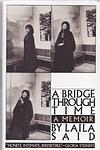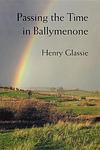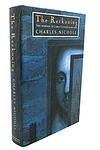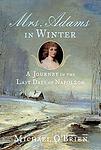The Greatest "Nonfiction, Historical fiction" Books Since 1980
Click to learn how this list is calculated.
This list represents a comprehensive and trusted collection of the greatest books. Developed through a specialized algorithm, it brings together 286 'best of' book lists to form a definitive guide to the world's most acclaimed books. For those interested in how these books are chosen, additional details can be found on the rankings page.
Genres
Historical fiction is a genre of literature that combines fictional stories with real historical events, settings, and characters. These books often take place in a specific time period and are based on research and factual information, but also include imaginative elements to create a compelling narrative. Historical fiction allows readers to experience the past in a unique and engaging way, while also providing insight into the social, cultural, and political issues of the time.
Countries
Date Range
Reading Statistics
Click the button below to see how many of these books you've read!
Download
If you're interested in downloading this list as a CSV file for use in a spreadsheet application, you can easily do so by clicking the button below. Please note that to ensure a manageable file size and faster download, the CSV will include details for only the first 500 books.
Download-
1. Schindler's List by Thomas Keneally
The book tells the true story of a German businessman who saves more than a thousand Polish Jews during the Holocaust by employing them in his factories. The protagonist's transformation from a greedy high living war profiteer to a savior of lives forms the crux of the narrative. It offers a chilling yet inspiring account of the horrors of the Holocaust, human resilience, and the power of one individual to make a significant difference.
-
2. What Is the What by Dave Eggers
The novel is a fictionalized account of a real-life Sudanese refugee, Valentino Achak Deng, who was forced to flee from his village during the Second Sudanese Civil War. The story follows his harrowing journey as a child through Ethiopia and Kenya, his life in various refugee camps, and his eventual resettlement in the United States. The book explores themes of survival, identity, and the power of storytelling, while shedding light on the tragic history and ongoing humanitarian crisis in Sudan.
-
3. Schindler's Ark by Thomas Keneally
The book is a historical novel based on the true story of a German industrialist who becomes an unlikely humanitarian amid the barbaric Nazi reign. When he witnesses the horrors inflicted upon the Jews, he is moved to save as many as he can by employing them in his factory. His actions, driven by courage and compassion, lead to the salvation of over a thousand Jewish workers from certain death in the Holocaust. The narrative explores themes of morality, survival, and the capacity for good in the face of overwhelming evil, as the protagonist navigates the complexities of war and the human spirit.
-
4. Out Of The Fire by Ales Adamovich, Yanka Bryl, Vladimir Kolesnik
"Out Of The Fire" is a powerful collection of stories that vividly depict the horrors and resilience of the human spirit during World War II. Through the eyes of various characters, the book explores the devastating impact of war on individuals and communities, capturing their struggles, sacrifices, and moments of hope amidst the chaos. With hauntingly beautiful prose, the authors bring to life the unimaginable atrocities of the war, reminding us of the importance of remembrance and the enduring strength of the human soul.
-
5. A Bridge Through Time by Laila Abou-Saif
"A Bridge Through Time" is a poignant memoir that chronicles the author's life journey, weaving together the rich tapestry of her Egyptian heritage with her experiences in the Western world. The narrative delves into the complexities of identity, culture, and the sense of belonging as the author navigates the challenges of assimilation and the preservation of her roots. Through a series of reflective anecdotes and personal insights, the book offers a unique perspective on the universal quest for self-discovery and the reconciliation of disparate worlds, ultimately serving as a metaphorical bridge connecting the past with the present.
-
6. Dumba Nengue, Run For Your Life by Lina Magaia
The book is a harrowing account of the Mozambican people's suffering during the civil war that followed the country's independence from Portugal. It compiles testimonies and personal stories that reveal the atrocities committed by the Renamo guerrillas, who were backed by foreign powers. Through the eyes of the survivors, the narrative exposes the brutalities of war, including the destruction of villages, the murder of innocent civilians, and the resilience of those who were forced to flee their homes. The work serves as both a poignant reminder of the cost of conflict and a tribute to the spirit of the Mozambican people who endured and survived amidst such terror.
-
7. The Lost Painting by Jonathan Harr
"The Lost Painting" tells the story of a lost masterpiece by Italian Baroque artist Caravaggio, titled "The Taking of Christ." The book follows the journey of a young art historian, Francesca Cappelletti, as she sets out to uncover the painting's whereabouts. Along the way, she encounters a cast of characters including art dealers, art historians, and even a mafia boss. Through meticulous research and a bit of luck, Cappelletti finally locates the painting in a Dublin Jesuit house, where it had been hanging for centuries, unrecognized as a Caravaggio. The book is a captivating tale of art history, detective work, and the power of obsession.
-
8. Isaac's Storm by Erik Larson
"Isaac's Storm" is a gripping narrative that chronicles the devastating 1900 Galveston hurricane, the deadliest natural disaster in American history, through the eyes of Isaac Cline, a senior meteorologist for the U.S. Weather Bureau. The book delves into Cline's personal and professional life, exploring his initial underestimation of the storm's severity and the tragic consequences that followed. It combines meticulous research with vivid storytelling to capture the human drama and the meteorological turmoil of the event, highlighting the limitations of early 20th-century weather forecasting and the impact of human error and hubris on disaster response and preparedness.
-
9. Passing The Time In Ballymenone by Henry Glassie
"Passing the Time in Ballymenone" is an immersive ethnographic study that delves into the rich oral traditions and community life of a small, rural village in Northern Ireland. The book explores how the residents of Ballymenone, through storytelling, music, and historical narrative, preserve and shape their cultural identity amidst the backdrop of political conflict and social change. The author meticulously documents the everyday conversations and interactions among the villagers, offering a profound insight into the ways in which folklore and cultural practices are interwoven with individual lives and collective memory.
-
10. The Emperor's Last Island by Julia Blackburn
"The Emperor's Last Island" explores the final years of Napoleon Bonaparte's life during his exile on the remote South Atlantic island of Saint Helena following his defeat at Waterloo. The book delves into the harsh and isolated conditions Napoleon endured on the island, the complex relationships he had with his small entourage and the British overseers, and the poignant reflections on power, ambition, and downfall. Through a blend of historical detail and vivid storytelling, the narrative captures the dramatic and melancholic twilight of one of history's most iconic figures.
-
11. The Reckoning by Charles Nicholl
"The Reckoning" is a compelling historical narrative that delves into the mysterious murder of Christopher Marlowe, a renowned Elizabethan playwright and contemporary of William Shakespeare. The book meticulously reconstructs the political and social climate of 16th century England, a time rife with espionage, religious conflict, and intrigue. Through detailed research, the author explores the circumstances leading to Marlowe's untimely death, examining the roles of various historical figures and uncovering the complex web of Elizabethan politics and espionage that may have led to the playwright's demise. The narrative not only sheds light on the life and death of Marlowe but also provides a vivid portrayal of the Elizabethan era's shadowy underworld.
-
12. Mrs. Adams In Winter by Michael O'Brien
"Mrs. Adams in Winter" is a captivating historical narrative that follows Louisa Catherine Adams, the wife of John Quincy Adams, on her perilous winter journey across Europe in 1815. Amidst the tumultuous backdrop of the Napoleonic Wars, Louisa travels from Russia to France to reunite with her husband in Paris. The book not only details the physical hardships of her journey through a war-torn continent but also delves into her personal struggles and reflections. Through this intimate portrayal, the book offers a unique lens on the political and social upheavals of early 19th-century Europe, while highlighting the resilience and complexity of its central figure.
-
13. The Boys In The Boat by Daniel James Brown
This book tells the inspiring true story of the University of Washington's 1936 eight-oar crew and their epic quest for gold at the Berlin Olympics. It focuses on how these sons of loggers, shipyard workers, and farmers overcame immense physical and psychological challenges to defeat elite rivals first from eastern and British universities and finally the German crew rowing for Adolf Hitler in the Olympic Games. The narrative not only captures the sheer physicality and competitive nature of rowing but also delves deeply into the personal lives and backgrounds of the crew members, illustrating how their shared experiences and unbreakable bond drove them to achieve an unparalleled victory in the face of adversity.
-
14. Going Dutch by Lisa Jardine
"Going Dutch" explores the profound influence of Dutch culture and innovation on seventeenth-century England during the reign of William III and Mary II. The book delves into how the Glorious Revolution led to a significant transfer of intellectual and cultural ideas between the Dutch and the English. It examines the impact of this cross-cultural exchange on various aspects of British life, including art, science, trade, and politics, highlighting how Dutch expertise and practices were instrumental in transforming and modernizing England. The narrative provides a detailed analysis of the period, illustrating the lasting impact of Dutch influence on British society.
Reading Statistics
Click the button below to see how many of these books you've read!
Download
If you're interested in downloading this list as a CSV file for use in a spreadsheet application, you can easily do so by clicking the button below. Please note that to ensure a manageable file size and faster download, the CSV will include details for only the first 500 books.
Download











